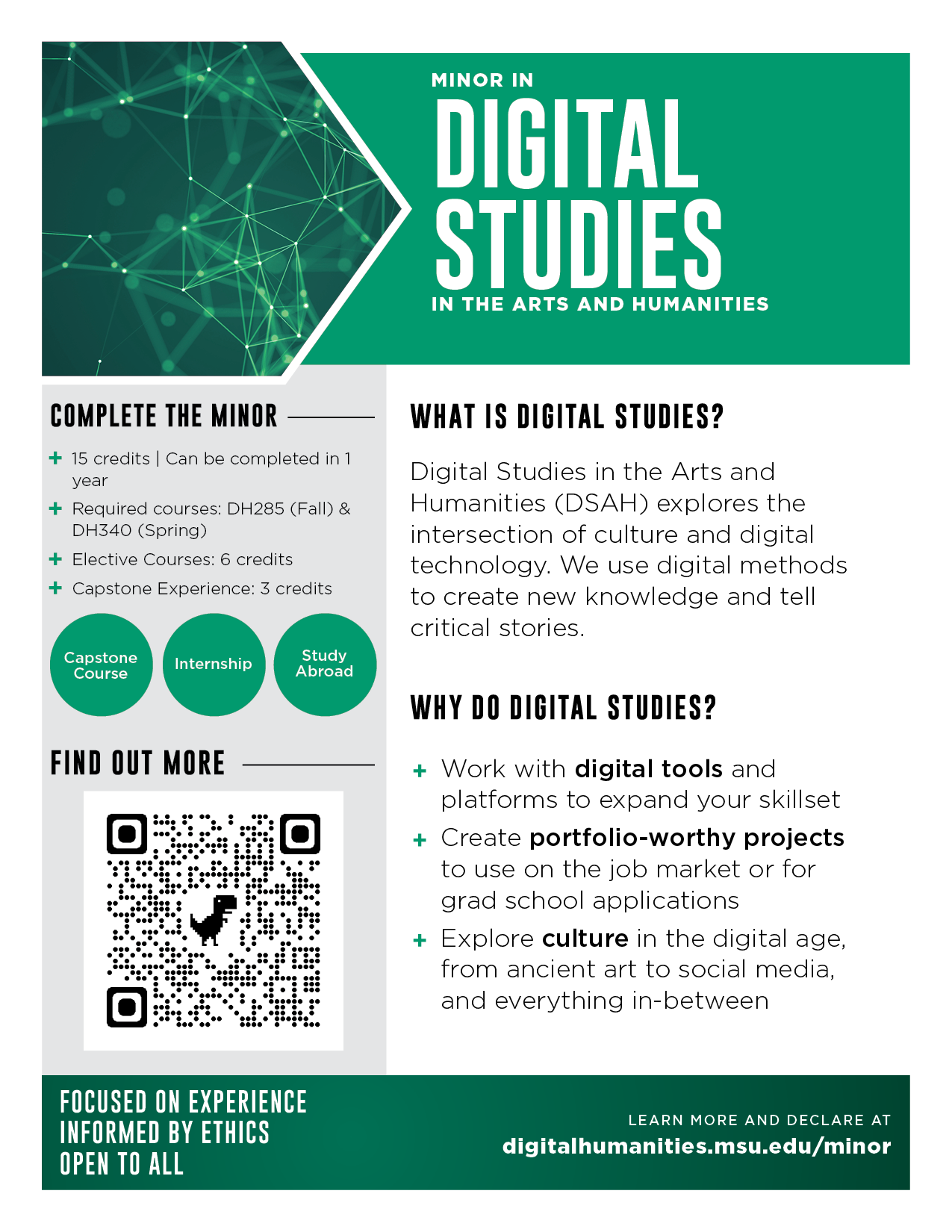
Focused on Experience | Informed by Ethics | Open to All
What is Digital Studies in the Arts and Humanities?
Digital Studies in the Arts and Humanities (DSAH) explores the intersection of culture and digital technology. We use digital methods to create new knowledge and tell critical stories.
In this minor, students will develop knowledge, skills, and experiences that will help them make change in a world that is entangled with the digital in complex and layered ways. Our students are effective global and local citizens with the flexibility, critical thinking, and other skills needed by professionals in the 21st century.
Why do Digital Studies?
- Tell stories that matter with digital tools and materials
- Center humans in data analysis
- Connect with communities around the world, through study abroad, faculty-led projects, and internship opportunities
- Explore methods such as text analysis, computational image analysis, mapping, network analysis, and more
- Gain hands-on experience doing projects
- Collaborate in interdisciplinary teams
- Build a portfolio of digital work for the job market or graduate school
- Bring a technical edge to humanities study
- Develop skills, such as website creation, data analysis and visualization, project management, and more

“Digital Humanities is all about innovation, analysis, collaboration, broadening access to information, and data management. I apply all of these principles in my job.”
– Miranda Madro, Class of 2017
Learning Goals
In completing this minor, students will do all of the following:
- Explain the ethical ramifications, equity issues, and cultural or historical contexts of digital technologies and how this knowledge can shape real world decisions
- Use digital arts and humanities methods to constructively address questions related to the humanities, ethics, culture, arts, or society
- Demonstrate skills related to four or more of the following:
- Collaborate effectively on a digital project on an interdisciplinary team
- Demonstrate project management skills, such as organization, maintaining a timetable, resource management, documentation, proactive troubleshooting, comfort with experimentation
- Engage in work that makes a digital project more inclusive or equitable, in its processes or products, and/or make decisions that reflect humanistic knowledge about ethical considerations in digital practices
- Collect, prepare, and analyze data or metadata
- Use computer programming to engage with humanities inquiry
- Adeptly selecting the technology and tools to suit the work at hand
- Create multimodal, multimedia work
